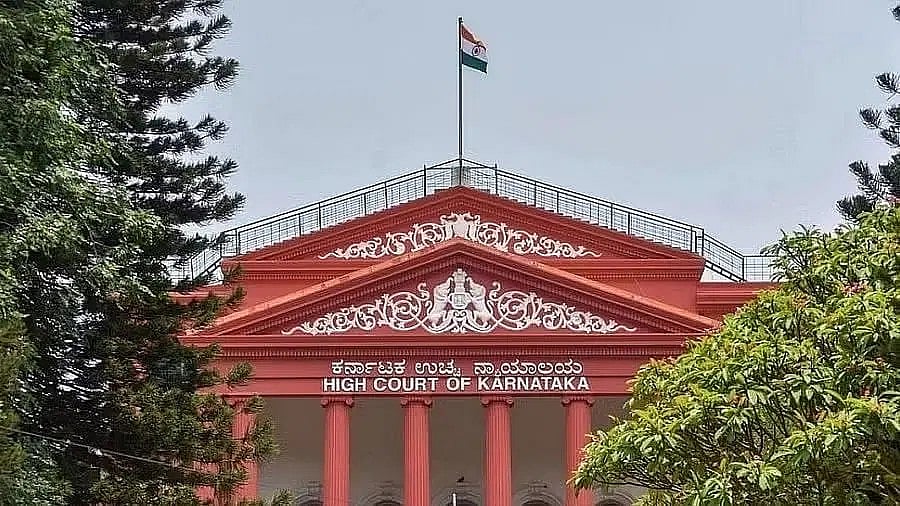
Karnataka High Court
Credit: DH File Photo
Bengaluru: The Karnataka High Court has refused to quash proceedings against an Indian Institute of Science (IISc) assistant professor for offences under the provisions of the Protection of Children from Sexual Offences (Pocso) Act.
The allegation is that the assistant professor, during the celebration of his daughter’s birthday party, had touched about eight children inappropriately while they were playing a game of dark room.
The professor had moved the High Court, challenging the FIR and the chargesheet under sections 7 and 8 of the Pocso Act; section 7 deals with sexual assault and section 8 with punishment for sexual assault.
The incident took place on September 30, 2018, when the petitioner had invited residents of the neighbouring apartments and their children to the birthday party.
The allegation was that, while the children were playing a 'ghost house' game in a darkened room, the petitioner touched the girl children inappropriately. One victim filed a complaint, and the petitioner approached the High Court at a stage when the trial court had examined 13 witnesses.
The petitioner submitted that the de-facto complainant had an axe to grind and had filed the complaint to harass him. It was also contended that the statements recorded by the trial court from all the witnesses and victim children were verbatim, and thus contrary to Section 25 of the Pocso Act. It was further submitted that no medical examination had been conducted on any of the victims.
On the other hand, the Additional State Public Prosecutor stated that the allegation was of inappropriately touching several children, misusing the darkness in the room.
Justice M Nagaprasanna noted that the law is well settled that even one credible statement, if sufficient, can call for a trial.
“No doubt the girl children who have been victims in the case at hand have not offered themselves for medical examination, this again is not fatal. Law is settled that medical evidence, though desirable, is not sine qua non, where other credible ocular evidence exists,” Justice Nagaprasanna said.
The court further observed, "The police after investigation have filed the charge sheet. It may be that the statements recorded of the children by the magistrate are similar with each other. This at best is a factor for appreciation of evidence, not a ground for pre-trial exoneration, as it would not mean that the children have not deposed before the magistrate under Section 164 of the CrPC."
The court has also directed the trial court to conclude the trial within three months.
